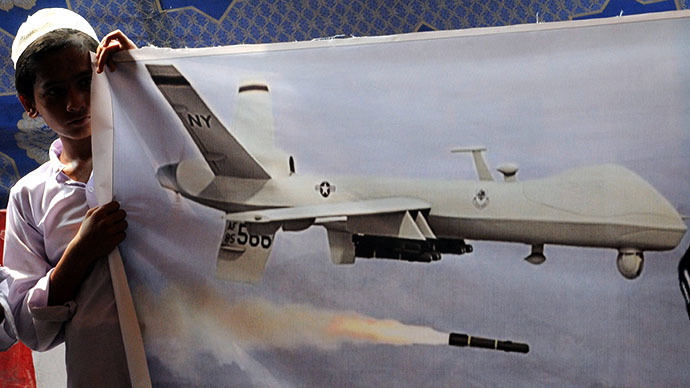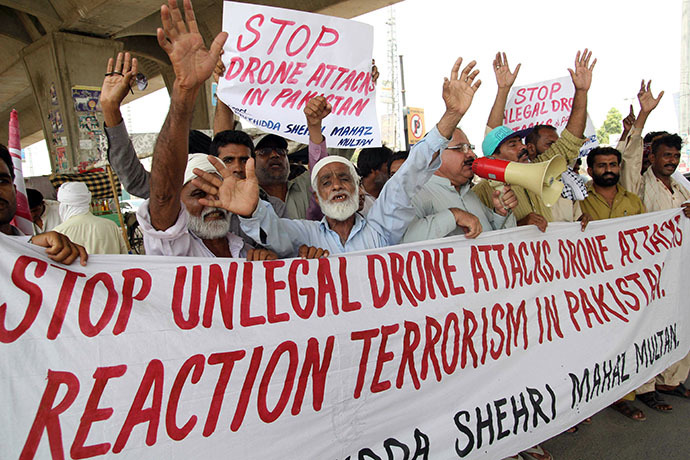Drone strikes enhance terrorism in Pakistan

Drone strikes in Pakistan breed more terrorists, journalist and former Pakistani Air Force officer Sultan M. Hali told RT, while explaining the effects that US attacks have on the country.
RT:The UN is calling for action now, but your country has been targeted by US drones for years. Describe to us the situation on the ground. How bad is it really?
Sultan M. Hali: The situation is really bad. Pakistan has suffered - probably the most in the region - not only because of terrorism, but because of terrorism which became enhanced owing to the drone strikes. Previous regimes in Pakistan have been accused of actually providing a tacit approval. I’m not sure whether that is true or not, but the fact remains that the drone attacks have caused collateral damage, and the collateral damage in turn has given a marked rise to the number of terrorists because they have been able to recruit some of the relatives of the people who have been slain in these attacks innocently. That is how the terrorism in Pakistan has spread.
We have a new regime here which is nearly about three and a half months old. But this regime - which is headed by Prime Minister Nawaz Sharif - he is headed towards the US for his first meeting with President Obama at an official level during his third tenure now as prime minister. And he is carrying the aspirations of people, because in Pakistan there is so much anger that in all parties a political conference was held, in which every single political party not only participated, but they endorsed the fact that the drone attacks are causing maximum terrorism, and they have empowered the government to tell the US that they must put an end to it.

RT:Washington is saying that precision drone strikes are meant to cause small collateral damage - less than conventional warfare. But obviously the situation on the ground is different. To what extent do you agree or disagree with what Washington is saying?
SH: I don't agree with that because the US apparently is hiding fact; it has not come clean...Secretary General Ban Ki-moon was in Pakistan only a month back. And he made very clear that the use of the drones for aggression is totally a contravention to international law. And now the poll that you just mentioned, by Ben Emmerson, it carries the same facts and figures.
It is ironical that a little girl like Malala Yousafzai, the teenager who was targeted by the Taliban, recently met President Obama on exactly the same day that she was to be awarded the Nobel Peace Prize, but she did not get that award. And she was meeting Mr. Obama who is a Nobel Prize winner for peace, which is actually ironical because he has caused more damage, more mayhem, and has killed more people...Malala Yousafzai told [Obama] very clearly, that ‘Mr. President, the drone attacks must stop because they are causing more terrorism in Pakistan.’ So I think that the United States of America, they must come clean, and they have to take responsibility. Because not only Ben Emmerson [but also] Professor Christof Heyns, the UN special rapporteur on extrajudicial killings and summary executions, has come out with the fact that this particular use of – technically the use of drones is a misuse of technology and international policing, so it has come to an end. If it doesn’t, then I’m afraid that terrorism will continue.
The statements, views and opinions expressed in this column are solely those of the author and do not necessarily represent those of RT.












